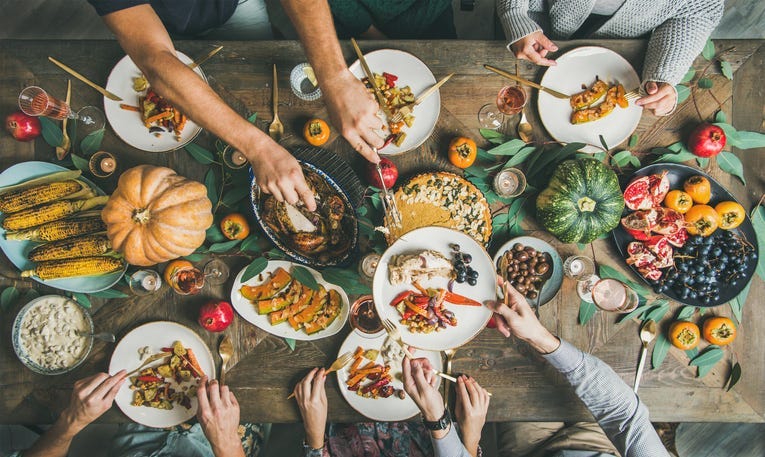With Thanksgiving nearly upon us, before we know it, we'll be traveling to spend time with family and loved ones, and gathering around the table to celebrate our blessings with a huge feast, and the Red Cross has offered several tips to keep the holiday a happy one. In addition, they suggest taking the opportunity for a family meeting to discuss disaster preparedness and evacuation plans. In addition, this might also be a good time to designate an out-of-state friend or family member as the point person in the event of an emergency, as often times local phone lines may be overloaded or out of service during a disaster.
“It’s important to include all members of your household when creating your family disaster plan,” notes Jarrett Barrios, CEO of the Red Cross Los Angeles Region, in a press release. “Talking about disaster preparedness can make it seem much less scary. Put together a family disaster kit, make a plan and practice it together.”
This is also a good time to test smoke alarms and practice escape plans. Further, the Red Cross reminds us that Thanksgiving is the top day for home cooking fires in the U.S., more often than not caused by unattended cooking.
COOKING SAFETY- Keep an eye on what you fry. Stay in the kitchen and never leave cooking food unattended. If you must leave the kitchen, even for a short period of time, turn off the stove.
- Clean and clear the area around the stove before turning on the heat.
- Move items that can burn away from the stove. These include towels, bags, boxes, paper and curtains.
- Avoid wearing loose clothing or dangling sleeves while cooking.
- Keep children and pets at least three feet away from the stove.
- Turn pot handles to the back of the stove, so no one bumps them or pulls them over.
- Fires can start when the heat is too high. When frying food, turn the burner off if you see smoke or if the grease starts to boil. Carefully remove the pan from the burner.
- Keep a pan lid or a cookie sheet nearby. Use it to cover the pan if it catches on fire. This will put out the fire. Leave the pan covered until it is completely cooled.
- Use a timer to remind yourself that the stove or oven is on.
- Check the kitchen before going to bed or leaving home to ensure all stoves, ovens and small appliances are turned off.
TRAVEL SAFETY
- Make sure your car is in good condition for a road trip.
- Pack an emergency preparedness kit, supplies and a first aid kit in your vehicle.
- Share travel plans with a family member or friend.
- Check the weather before departing and along your route. Plan for travel around any storms that may be coming.
- Be well rested and alert.
- Buckle up, slow down and don’t drive impaired.
- Follow the rules of the road and use caution in work zones.
- Give your full attention to the road. Avoid distractions such as cell phones.
- Make frequent stops. During long trips, rotate drivers. If you’re too tired to drive, stop and get some rest.
- If you have car trouble, pull off the road as far as possible.

